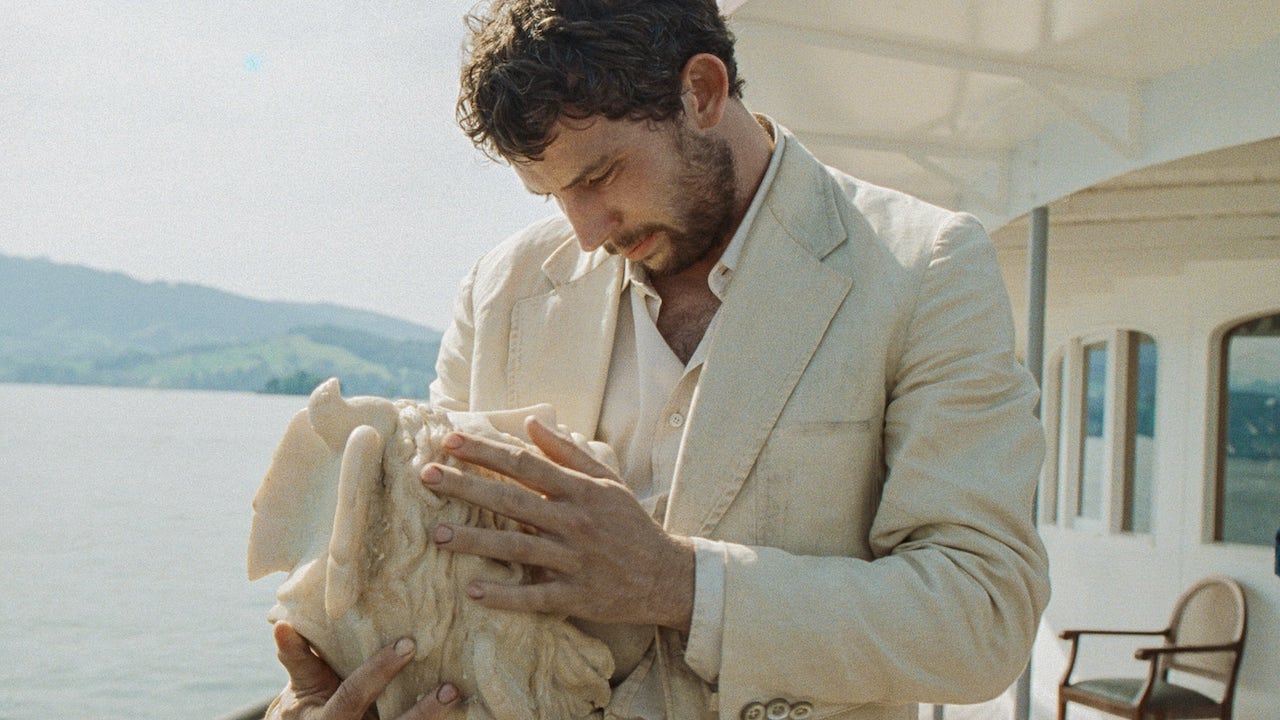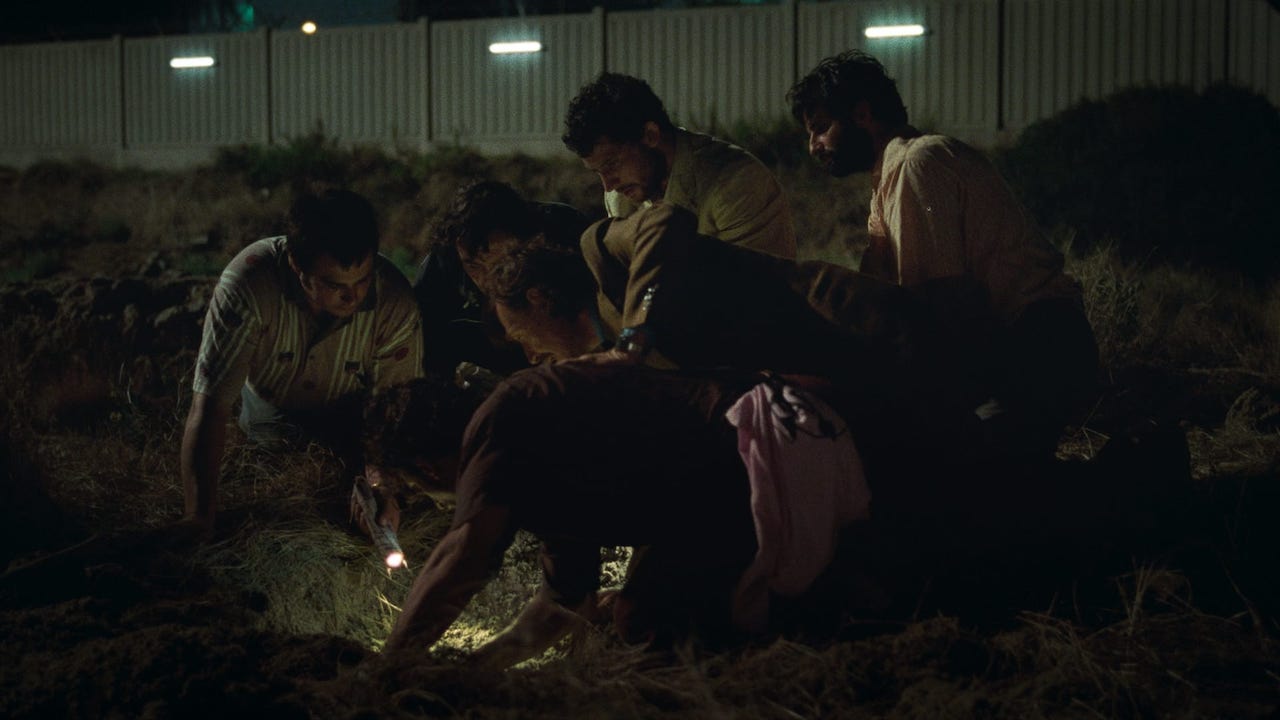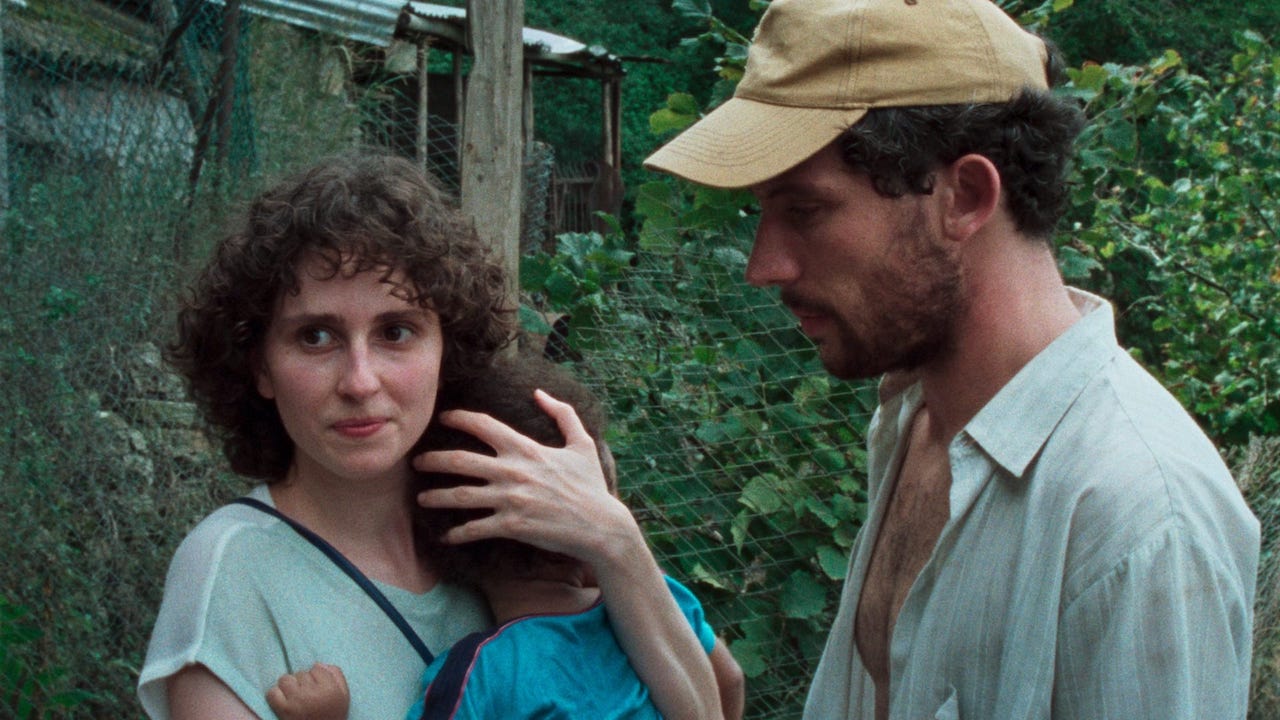Alice Rohrwacher unearths lost magic in grave-robbing drama La Chimera

A lovelorn Josh O’Connor digs up ancient artefacts and personal tragedy in La Chimera, the latest dreamy drama from Italian director Alice Rohrwacher. Eliza Janssen was deeply moved by this archaeological wonder.
All cinema is excavation—of the self, the past, imagined yet emotionally true secrets that rise to the surface of plot. The best films manage to feel like history-making archaeological digs, unearthing precious ideas that we didn’t even realise we’d lost. While La Chimera features plenty of actual digging—and none of it glorious or even legal—Alice Rohrwacher’s latest sumptuous trip into a magical Tuscan underworld can’t be called “groundbreaking”.
It follows the contours of her celebrated previous film Happy As Lazarro, about a wide-eyed farmhand with a Messianic touch, whilst enriching its romantic drama with the ancient heft of Greek myths about emo widowers and blessed treasures. The most brilliant, unforgettable shots in the film trap us in an underground crypt, dust and darkness cloaking a grotto full of beautiful, unrecognisable objects.
Then our thieving protagonists make their intrusion: slits of light cut into the space for the first time in centuries. Millennia, perhaps. Rohrwacher’s splendid new movie doesn’t want to disturb or subvert the rhythms of its laid-back crime story—only to shed light where it’s deserved, on forgotten and heartbreaking history.
The past is a painful topic for our rumpled protagonist Arthur (Josh O’Connor), a British archaeologist who returns to small Tuscan town Riparbella, fresh out of a jail stint with one thing on his mind: booty. Get your mind out of the gutter, man, I’m talking about relics stolen from unmarked rural graves. Wearing a hangdog expression and an ever-dirtying white suit, Arthur uses his witchy, “chimerical” knack for divining these sites—with a literal divining rod—to plunder ancient crockery, statues, and jewellery. He’s a tombaroli—part of a network of scampish grave-robbers who attract both disapproval and a kind of folk heroism for their ill-gotten fortune. You know how Indiana Jones is always hollering about how some obscure antique “belongs in a museum”? These guys are content with spruiking everything they uncover on the black market for a weekend’s beer money.
The rest of his squad bicker and hoot at each immoral bounty: “it’s been waiting for us for two thousand years!”, they crow with entitlement. Yet Arthur is constantly swept away into the kind of yearning dream sequences we’re used to from handsome widowers in film. Of his lost love Beniamina (Yile Vianello), who he tries to follow below the earth with every tomb-raiding mission like an Orpheus longing for his Eurydice.
He’s still enmeshed with her squabbling sisters and mother, played by a magisterial, snappy Isabella Rossellini, giving us just enough of a glimpse at our anti-hero’s pre-grief life. While Arthur might think that each new journey below for antiquities is perhaps bringing him closer to some mystical reunion, he’s all the while ignoring the very real threats of gangster-ish danger—and perhaps more pressingly, new happiness and love—happening up on the surface.

Rohrwacher’s work teems with life, allowing us to visit shabby street carnivals, tour sparkling seas from luxe boats, and meet raucous parochial characters. She is, to my mind, the closest thing we have to a contemporary Fellini, particularly in those festive sequences and in her dreamy, lyrical direction. But don’t mistake La Chimera for a woozy Italian tourism advert—Rossellini’s mansion is near-Gothic in its decrepitude, and Arthur himself lives in a corrugated-tin shanty, perched precariously around the margins of his walled hometown. Even though the film is itself a period piece, with some fab early 1980s hair, makeup and fits, its emphasis is on long-lost wonders of the past—of an economically prosperous Italy, of some happier time before Beniamina’s death, of the shadowy world in which each stolen knick-knack was loved and useful.
Folk songs and direct addresses to camera, all proclaiming Arthur’s greatness, lose their power as La Chimera reaches its lovesick ending. Arthur’s eyes momentarily turn to maidservant Italia (Carol Duarte), a (terrible) singer who takes lessons from Rossellini whilst also hiding her young children within the older woman’s fading home. She gets a warm ending that we sense Arthur will never choose to join in on. Instead, he goes below once more, resulting in that breathtaking scene I described up top.

Rohrwacher gave us a few of those stunners in Lazzaro, as well. I recall watching a hilarious, shocking scene of the title character getting punted off a huge cliff in a packed cinema, the screen audio dropping out to let us hear each other’s gasps, laughter. La Chimera doesn’t indulge in that film’s luscious magical realism—besides some tantalising, perhaps unreal final moments—but it pulls off a similarly luminous act in more romantic, down-hearted style. When that climactic crypt is opened, we the viewer are complicit in the breaking of the seal, inviting new characters and their personal baggage into a place that Italia warns Arthur is “not meant for human eyes”. Rohrwacher lets us in for a greedy gulp of air, and we should be grateful.



















